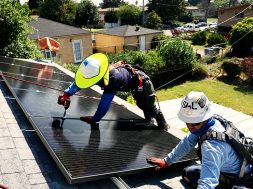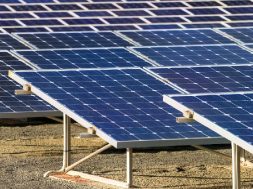
Inside Barefoot College where women from across the world become ‘solar engineers’
They don’t know a word of English. They come from least developed and developing countries: from Afghanistan to Ghana and Burkina Faso to Fiji. Most of them are not educated and live in remote villages. Yet they come to learn the art of making solar lanterns, solar lamps, parabolic cookers and solar water heaters.
At the end of six months, they are fluent in the complicated engineering process of making these simple solar products that can change their lives back in their villages. They are the “Solar Mamas of Tiloniya”, barefoot “engineers” who learn these skills and become ambassadors for solar power in their villages that don’t have electricity, water heaters or cooking gas.
On a hot afternoon, I walk into a classroom that has women from some least developed countries and villages in India. Most of them do not understand English, although their instructor is speaking in that language. It doesn’t seem to matter at all. These mamasturned-students have all the equipment needed to build solar lanterns with colour-code wires and a detailed instruction booklet.
They follow the instructor as he explains the process step-bystep. “Initially, it may seem the communication is difficult, but by the end of the six-month course, all the women communicate with each other and become friends,” says Nand Lal, a teacher at Barefoot College in Rajasthan’s Tiloniya.
It is fascinating to see how women from diverse countries, with no common language between them, communicate and become solar engineers. In a classroom nextdoor, women from Andhra Pradesh, Odisha, Bihar and Haryana huddle together to learn solar technology.
On the blackboard is a list of colours and numbers. Their trainer teaches them to match the colour and the number, to build the solar lantern. “By the end of the course, these women can build and repair their own solar lanterns,” says Lal. The women return to their villages with equipment for 120 solar lanterns, which they distribute in their community.
The Skilled Set
Started in the early 1970s by Bunker Roy to empower rural women, Barefoot College has been training women, giving them skills to bring about changes in their lives. “We don’t give them a certificate or degree, but skill them in such a way that they can be independent by earning a living for themselves as well as help others in their villages’’ he says.
The college has trained rural women from over 63 countries to become solar mamas.Sheetal Devi and Indra Devi from Tiloniya have set up their own solar enterprise on the campus, supported by the college. They manufacture and sell parabolic solar cookers and heaters.
Indra may not know her calculus and math, but she can deftly show you how to adjust the parabolic cooker to the angle of the sun, made with 300 mirrors and adjusted using a pendulum line. “We have set up this enterprise and have been selling these cookers to rural women, who otherwise use chulhas and firewood to cook,” she explains.
Over the years, the college has been training rural women and men in the art of making toys, stationery, furniture and more, which is sold to nearby government schools. “We keep on skilling people in different areas — from craft and education to livelihood and health care — so that they are able to generate income for themselves,” says Lal.
For example, Barefoot saw a need for rural dentists. So along with a team of doctors from around the world, some women like Bhawari Devi were taught how to carry out simple dental procedures, approved by the government.
As I lay on her dentist chair, Bhawari Devi shines a torch inside my mouth, takes one look and points out the cavities that I need to fix. “I know how to do a root canal also,” she says, “but we do only small procedures and refer the patient to a qualified dentist for complicated things like root canals.”
But it’s the solar mamas who have been holding the torch high, with more than 1,000 trained women in 1,300 villages worldwide.













